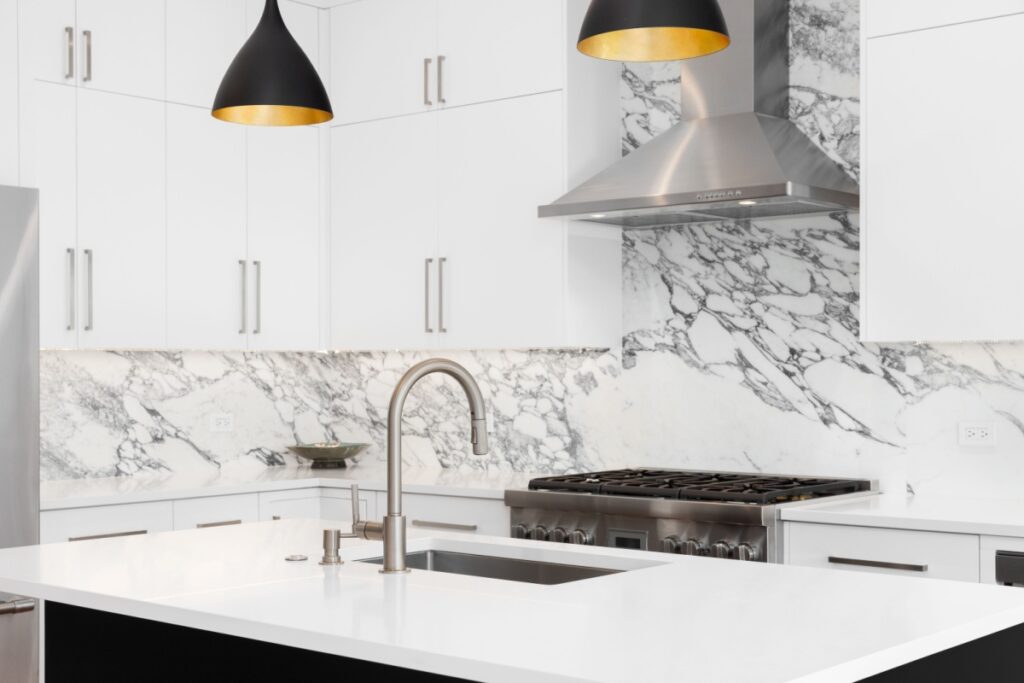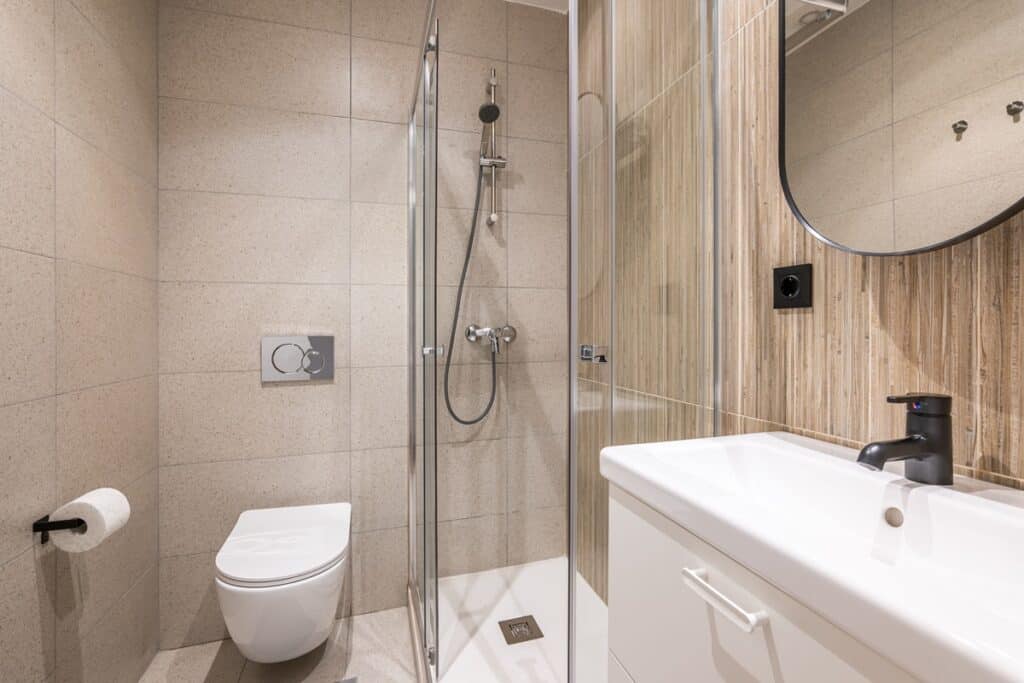Travertine tiles are cut from a naturally occurring stone, it is a porous type of limestone, which is normally found around mineral spring deposits, usually formed as a result of temperature and pressure changes.
But what are the pros and cons of travertine tiles?
Pros
- Travertine is a sedimentary rock, which means it is laced with small holes. However, to reduce its fragility, these holes are filled with resin in factories, to blend the surface. This means that travertine is a tough, durable stone that can last over 100 years with proper maintenance.
- Travertine tiles are easy to maintain, they require regular sweeping and mopping to ensure no dust and grime settles into the pores. Once a month we’d also suggest you thoroughly disinfect them, and once every few years you should use a stone sealer.
- Travertine tiles are a great flooring option for high-traffic areas that are susceptible to spills and stains. Unlike carpet, if you spill your red wine on travertine tiles, all you need is a quick wipe and they’ll be good as new.
- Travertine tiles offer an inalterable colour, UV doesn’t affect their vibrancy, so 10 years from installation they’ll still be the same colour as the day you installed them.
Cons
- Travertine is a great natural stone product that offers natural, earth-like tones. For this reason, some people may consider it as being ‘outdated’ however, this all depends on the design of the rest of your room. If the travertine tiles are worked into a modern room, they’ll complement this design perfectly.
- Travertine tiles, and all tiles, can be slightly more expensive to fit, especially when compared to flooring options such as lino. However, you get out what you put in. Once laid, good travertine tiles will last you for years, you won’t get scuffs and peeling corners, so it will be a long time before you have to think about replacing them.
If you are thinking about installing travertine tiles, get in touch and we can tell you much more about the benefits of this beautiful material.
tagsTravertine Tiles













